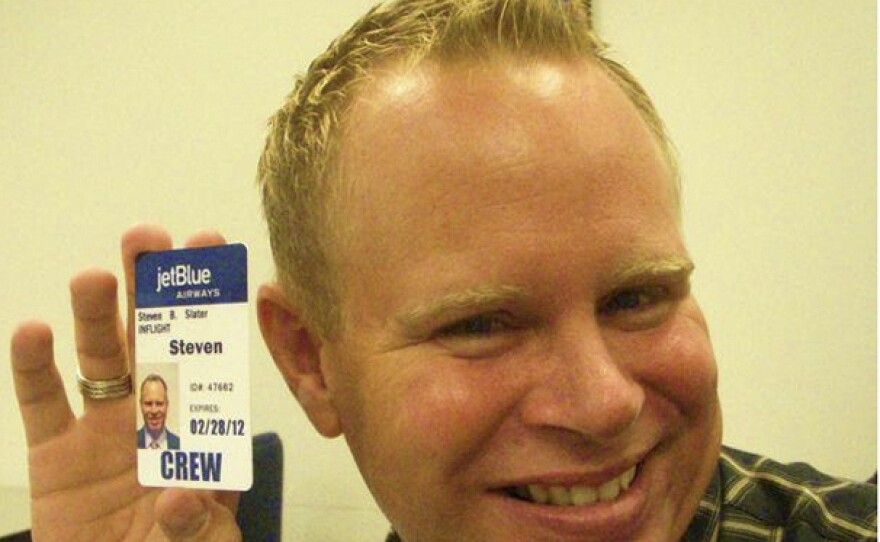When JetBlue flight attendant Steven Slater grabbed two beers and took an emergency exit slide earlier this week, he became an instant media sensation.
He now also faces charges of criminal mischief and reckless endangerment -- but many flight attendants say they know where he was coming from.
For veteran flight attendant Alin Boswell, the worst part of his job, by far, is boarding the plane.
"Dealing with the bags, dealing with everything that goes on with families separated, whatever is occurring, is the most frustrating part," he says.
Since the airlines started charging to check bags, he says, passengers have been trying to stuff as much as they can into the overhead bins. "And when room runs out, room runs out," he says. "We don't design the airplanes. We just work 'em."
Reports say it was a fight over carry-on baggage that sent the JetBlue flight attendant over the edge.
'What Has Changed Are Societal Norms'
Rene Foss has been a flight attendant for more than 25 years, "and I'm proud to say I haven't blown a chute yet," she says. But she says she's certainly had that I-just-want-out feeling.
"My first reaction was, 'Wow. I can't believe somebody has finally done this,' " Foss said by cell phone from the Minneapolis airport, where she was waiting for a flight.
Foss' mother was a flight attendant back when they were still called stewardesses. Foss says the job has gotten a lot less glamorous since then -- as has flying. Going through security is a pain, meals aren't free, even free peanuts are hard to come by. And good luck trying to find a pillow.
"Sometimes the flight attendant is just the recipient of all the terrible things that have happened throughout the trip, and that's a kind of a tough spot to be in," she says.
And she's been in that spot many times.
David Castelveter, a spokesman for the airline industry, says full flights and grumpy passengers are nothing new. "I think what has changed are societal norms, and there is a sense of expectation and entitlement by passengers," he says. "Sadly, it has made the challenge for our flight crews more difficult."
A Harder Job Since Sept. 11
But it is a customer service business, and dealing with passengers is just part of the job.
Veda Shook, the international vice president of the Association of Flight Attendants, is also a working flight attendant. How does she cope?
"You just put on a smile and say, 'Yeah, I'll get right back to you,' " she says with a laugh.
But seriously, she and others say, the job has gotten a lot harder since the Sept. 11 attacks. Flight attendants have more responsibilities, and many saw their wages and benefits cut as airlines struggled to stay in business.
According to the flight attendants union, the average salary is $35,000 a year. For those starting out, it's more like $20,000.
Boswell says he works more now, for less pay.
"As the work rules changed, that means that you have to work longer days for fewer hours and more days just to get the same hours in," he says.
But he still loves the job, because of the flexible schedule and the variety -- different co-workers and passengers all the time. He says he can't wait to get back in the sky to see if maybe, just maybe, the JetBlue "two beers and a slide" incident will inspire the passengers to be a little kinder.
Copyright 2022 NPR. To see more, visit https://www.npr.org. 9(MDAzMjM2NDYzMDEyMzc1Njk5NjAxNzY3OQ001))







